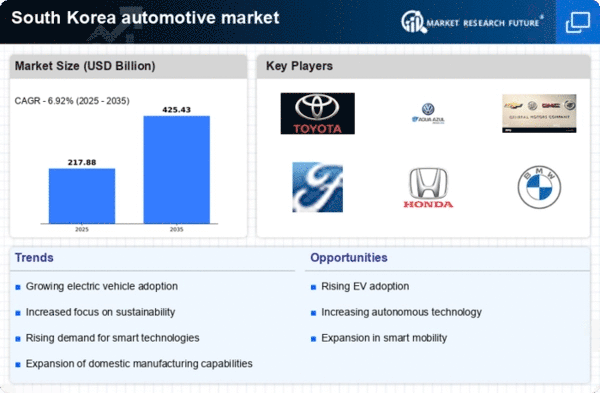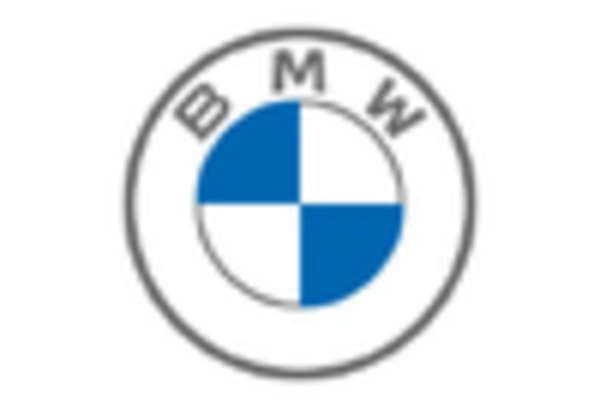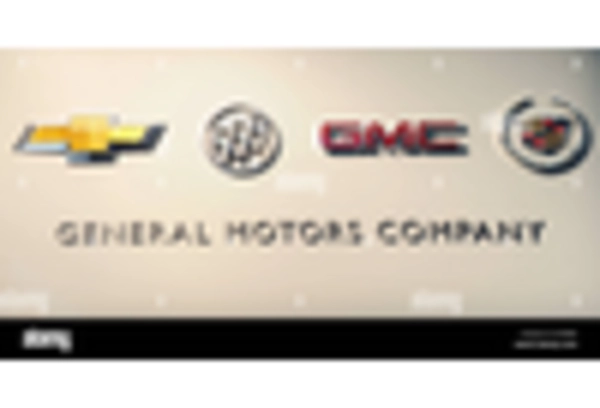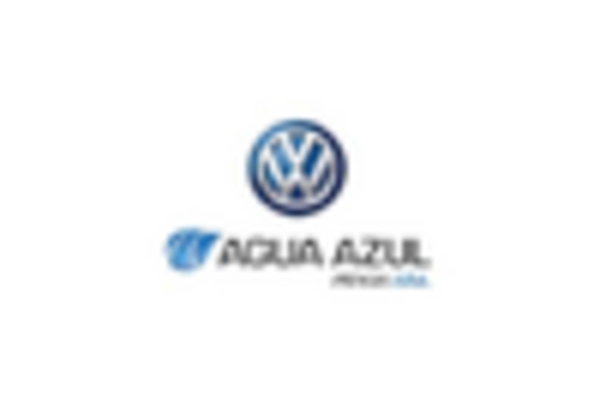Investment in Research and Development
Investment in research and development (R&D) is a critical driver for the automotive market in South Korea. Major automotive companies are allocating substantial resources to R&D to innovate and develop next-generation vehicles. In 2025, it is estimated that R&D spending in the automotive sector will exceed $5 billion, focusing on areas such as battery technology and autonomous systems. This commitment to innovation is essential for maintaining competitiveness and addressing the evolving needs of consumers. As a result, the automotive industry market is likely to witness significant advancements that could redefine mobility solutions in the coming years.
Government Incentives for Green Technology
The automotive market in South Korea is experiencing a notable shift due to government incentives aimed at promoting green technology. The South Korean government has implemented various subsidies and tax benefits for electric vehicle (EV) manufacturers and consumers. For instance, the government allocated approximately $1.5 billion in 2025 to support the development of EV infrastructure, including charging stations. This financial backing is expected to enhance the adoption of EVs, which could account for over 30% of new vehicle sales by 2030. Such initiatives not only stimulate the automotive industry market but also align with South Korea's commitment to reducing carbon emissions and fostering sustainable transportation solutions.
Expansion of Domestic and International Trade
The automotive market in South Korea is bolstered by the expansion of both domestic and international trade. South Korea's strategic location in East Asia facilitates access to key markets, enhancing export opportunities for automotive manufacturers. In 2025, automotive exports are projected to reach $40 billion, reflecting a 15% increase from the previous year. Additionally, trade agreements with countries such as the United States and EU nations are fostering a favorable environment for South Korean automotive products. This growth in trade not only strengthens the automotive industry market but also positions South Korea as a competitive player in the global automotive landscape.
Rising Consumer Demand for Eco-Friendly Vehicles
Consumer preferences are evolving, significantly impacting the automotive market in South Korea. There is a growing demand for eco-friendly vehicles, driven by increased environmental awareness among consumers. Recent surveys indicate that approximately 70% of South Korean consumers express a preference for purchasing vehicles with lower emissions. This trend is further supported by the fact that sales of hybrid and electric vehicles have surged by 25% in the past year alone. As consumers prioritize sustainability, automotive manufacturers are compelled to innovate and expand their eco-friendly vehicle offerings, thereby reshaping the competitive landscape of the automotive industry market.
Technological Advancements in Manufacturing Processes
Technological advancements are revolutionizing the manufacturing processes within the automotive market in South Korea. The integration of automation and robotics has led to increased efficiency and reduced production costs. For instance, the adoption of Industry 4.0 technologies is enabling manufacturers to optimize supply chains and enhance product quality. Reports suggest that manufacturers utilizing advanced technologies have seen productivity improvements of up to 20%. This shift not only enhances competitiveness but also allows for greater flexibility in responding to market demands, ultimately benefiting the automotive industry market as a whole.

















Leave a Comment